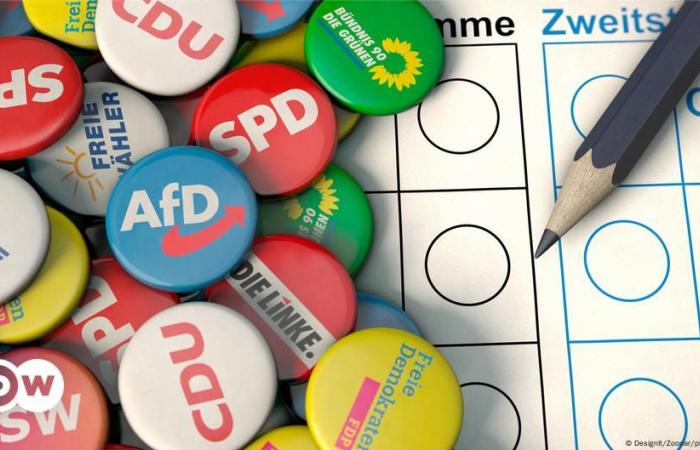The date of the next parliamentary elections in Germany is the subject of an increasingly passionate political debate. The debate brought in its wake the federal election administrator, the chief executive of the country’s largest ballot printing company and even the president of the German paper industry association.
The ruling center-left Social Democrats (SPD) and the opposition center-right Christian Democratic Union (CDU) agreed on Tuesday (12.11.2024) to hold new parliamentary elections on February 23, 2025. That would be about seven months earlier than expected, before the governing coalition collapsed last week.
The coalition partners of the SPD, the Greens and the Liberal Party (FDP) also accepted the new date. President Frank-Walter Steinmeier, German head of state, also supported this timetable, which he considers “realistic”.
The agreement ended several days of wrangling over the logistics of early federal elections, which would be triggered by the chancellor seeking a vote of no confidence in parliament’s lower house, the Bundestag. Once he loses the vote, as expected, the president will have a maximum of 21 days to dissolve parliament, after which national elections must take place within 60 days.
More than 60 million German citizens have the right to vote: They must be at least 18 years old, have resided in Germany for at least three months and be registered on the electoral roll of their place of residence.
Christmas and the paper shortage
The conservative CDU and other opposition parties had tried to bring the elections forward to January. Chancellor Olaf Scholz, meanwhile, had initially suggested late March or early April, on the grounds that the government needed time to pass certain laws that were close to being completed. Another reason is that the competent authorities would need time to properly organize an election.
This sparked protests from the conservative opposition and some German media. But the chancellor was backed this weekend by Federal Election Administrator Ruth Brand, who suggested the Christmas holidays and a paper shortage could cause problems.
The CDU accused Mr Scholz of putting pressure on Ms Brand, who is a member of the SPD. “We have the impression that there was political influence”said Jens Spahn, one of the CDU’s most outspoken figureheads.
Lack of staff could lead to additional work
However, some election commissioners also warned of a rushed election, notably in Berlin, where the last election in 2021 had to be partially repeated due to irregularities at some polling stations.
Hauke Haverkampan election official in Berlin, told a German daily that elections in February meant snow removal service might have to be set up outside polling stations and staff would have to cancel their winter vacations .
Wilko Zicht, director of the non-profit election monitoring organization Wahlrecht, estimates on DW that the authorities will now have to carry out around four months of work in the space of just two months.
According to Mr. Zicht, the most pressing problem will arise for small political parties, which do not have the resources and personnel to quickly establish lists of candidates.
Local authorities, meanwhile, must find rooms for polling stations, volunteers for elections and print ballots – especially postal ballots, which must be sent well in advance of election day. election.
Although some warned of rushed elections, the German Association of Cities and Municipalities (DStGB) insisted everything would go smoothly. “Cities and municipalities will in any case be able to implement proper federal elections within the time limits prescribed by law”said the association in a press release published on Saturday.
Enough time for mail-in ballots?
Nevertheless, the issue of postal ballots is indeed urgent, especially for Germans living abroad, not least because, unlike other countries, Germany generally does not allow its citizens to vote in the embassies.
Voters are supposed to receive mail-in ballots at least three weeks before the election; which gives them enough time to send them back. “But it doesn’t always work.”Wilko said. Sight. “Often, their votes do not arrive in time to be counted. This problem is likely to be even more acute this time.”






